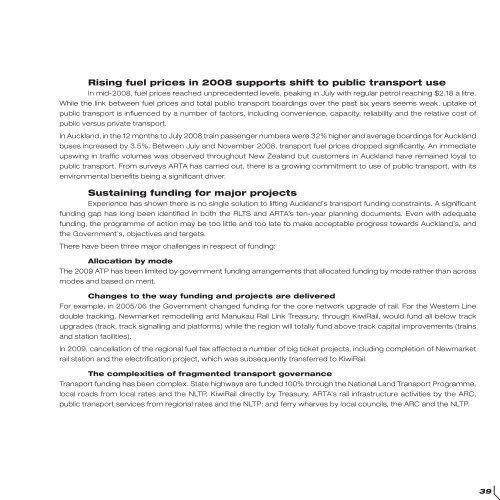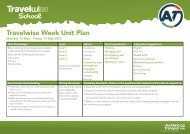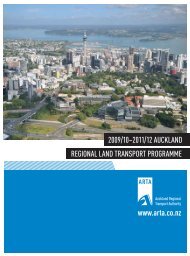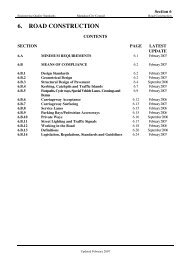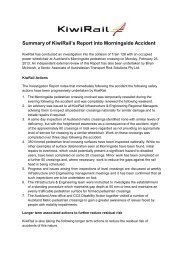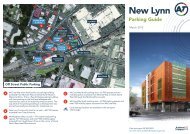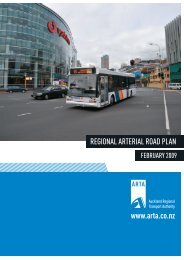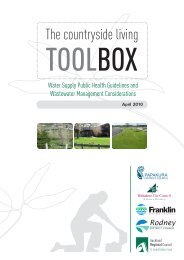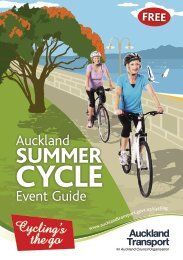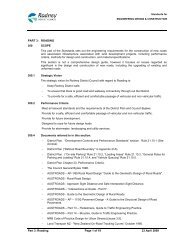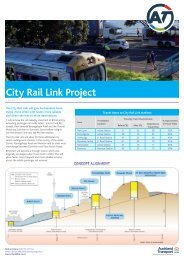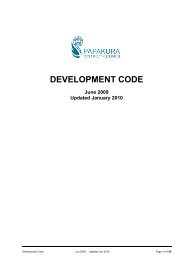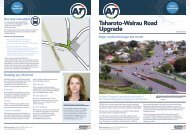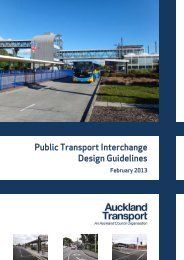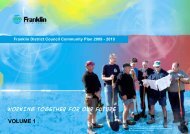The ARTA Years 2004 â 2010 - Auckland Transport
The ARTA Years 2004 â 2010 - Auckland Transport
The ARTA Years 2004 â 2010 - Auckland Transport
Create successful ePaper yourself
Turn your PDF publications into a flip-book with our unique Google optimized e-Paper software.
Rising fuel prices in 2008 supports shift to public transport use<br />
In mid-2008, fuel prices reached unprecedented levels, peaking in July with regular petrol reaching $2.18 a litre.<br />
While the link between fuel prices and total public transport boardings over the past six years seems weak, uptake of<br />
public transport is influenced by a number of factors, including convenience, capacity, reliability and the relative cost of<br />
public versus private transport.<br />
In <strong>Auckland</strong>, in the 12 months to July 2008 train passenger numbers were 32% higher and average boardings for <strong>Auckland</strong><br />
buses increased by 3.5%. Between July and November 2008, transport fuel prices dropped significantly. An immediate<br />
upswing in traffic volumes was observed throughout New Zealand but customers in <strong>Auckland</strong> have remained loyal to<br />
public transport. From surveys <strong>ARTA</strong> has carried out, there is a growing commitment to use of public transport, with its<br />
environmental benefits being a significant driver.<br />
Sustaining funding for major projects<br />
Experience has shown there is no single solution to lifting <strong>Auckland</strong>’s transport funding constraints. A significant<br />
funding gap has long been identified in both the RLTS and <strong>ARTA</strong>’s ten-year planning documents. Even with adequate<br />
funding, the programme of action may be too little and too late to make acceptable progress towards <strong>Auckland</strong>’s, and<br />
the Government’s, objectives and targets.<br />
<strong>The</strong>re have been three major challenges in respect of funding:<br />
Allocation by mode<br />
<strong>The</strong> 2009 ATP has been limited by government funding arrangements that allocated funding by mode rather than across<br />
modes and based on merit.<br />
Changes to the way funding and projects are delivered<br />
For example, in 2005/06 the Government changed funding for the core network upgrade of rail. For the Western Line<br />
double tracking, Newmarket remodelling and Manukau Rail Link Treasury, through KiwiRail, would fund all below track<br />
upgrades (track, track signalling and platforms) while the region will totally fund above track capital improvements (trains<br />
and station facilities).<br />
In 2009, cancellation of the regional fuel tax affected a number of big ticket projects, including completion of Newmarket<br />
rail station and the electrification project, which was subsequently transferred to KiwiRail.<br />
<strong>The</strong> complexities of fragmented transport governance<br />
<strong>Transport</strong> funding has been complex. State highways are funded 100% through the National Land <strong>Transport</strong> Programme,<br />
local roads from local rates and the NLTP, KiwiRail directly by Treasury, <strong>ARTA</strong>’s rail infrastructure activities by the ARC,<br />
public transport services from regional rates and the NLTP; and ferry wharves by local councils, the ARC and the NLTP.<br />
39


